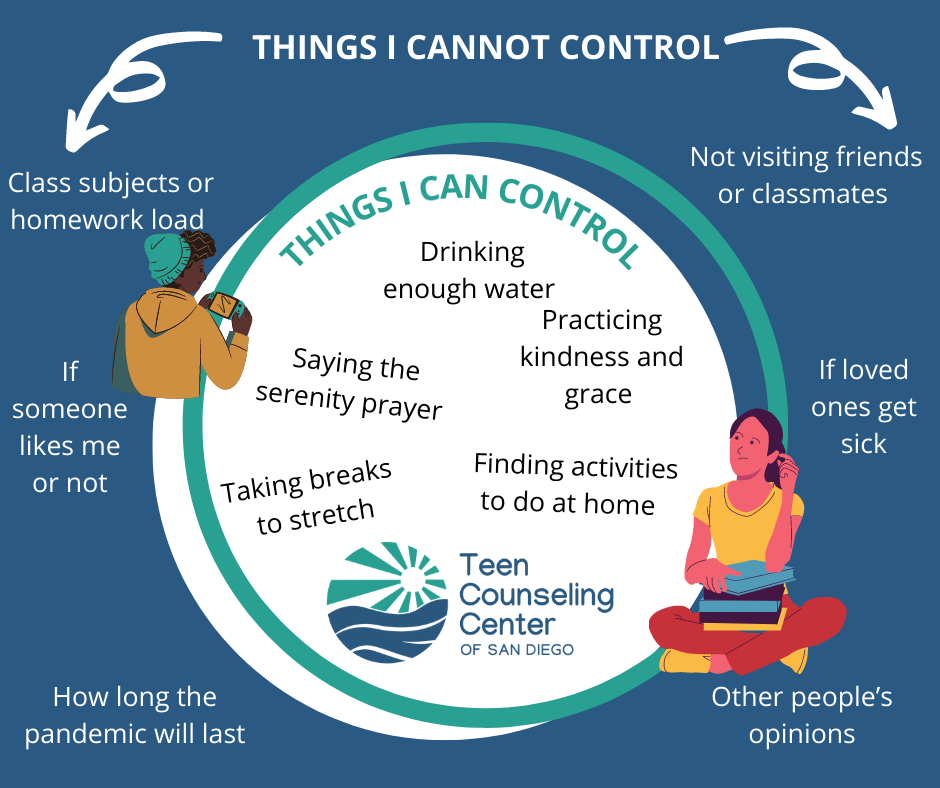Tips for Building Resilience in Teens During Tough Times
What Gardening Can Teach You About Parenting Your Teenager in Tough Times
Raising teenagers can be as fraught with challenges as starting a garden. I should know—my wife and I have tried to grow our own herbs and vegetables several times, often with lackluster results.
In our old garden in Vista, we set up a high tech drip irrigation system with a battery-operated timer. We thought this would give our plants the best chance of success by providing them with all the water they could want.
However, they never got very large, and many even died. We couldn’t figure it out though, so our plants kept struggling.
What Our Plants Really Needed Was the Opportunity to Build Resilience
When we moved to Escondido in late 2019 we decided to try again at the community garden down the street. The one downside—we would have to water our plants by hand this time, as the city had a strict no-irrigation system policy.
A few months in, we were pleasantly surprised. Our little garden flourished. It grew more than we anticipated and we reaped the rewards in the form of juicy tomatoes, fragrant lemongrass, and aromatic thyme.
Why was this attempt so successful when our previous ones had failed?
It turns out that most plants need a balanced amount of water, just enough but not too much. They also grow more robust when their roots are allowed to dry out in between waterings.
A plant that is watered every day doesn’t have to struggle or adapt. It can maintain a shallow root system and still access water. A plant in soil that is allowed to dry out, however, has to grow a deeper and larger root system to eek as much water as possible from what is available.
This deeper and larger root system also means the plant can better withstand pests, heatwaves, disease, weeds, and other threats. So while we thought our plants would suffer with a little stress from the dry soil, they actually took it in stride and used it to become more resilient.
Why Your Teenager Needs to Build Resilience, Just Like Our Garden
The dictionary defines “resilience” as the capacity to recover quickly from difficulties, the ability to spring back into shape. For humans, resilience is all about being able to recover quickly from stressful scenarios while growing into a more mature, well-adapted person.
2020 has had its fair share of challenges, from the COVID-19 pandemic, to a testy political election, to navigating a school load online. We’ve heard from some friends, family members, and clients that they are afraid this climate will negatively impact their teenagers. They want to protect them as much as possible from the difficult feelings that come with these experiences.
This is often the case, even in a less fraught time. Parents often go to great lengths to protect their teenagers from the pain of romantic heartbreak, broken friendships, academic failure, and athletic disappointment. This may look like avoiding certain situations or not being totally honest with your teenager about reality.
The truth is that raising teenagers is a lot like watering a garden. A little bit of stress is actually good for them, because it challenges them to become more resilient, a skill that they will use often as an adult, when you are not there to guide them.
Think of it this way. Would you rather have your teenager fail their first test now, when they have you there to help them bounce back, or in college when they lack a support system to help them deal with the disappointment?
Giving your teens the opportunity to struggle and even fail now helps them build those solid roots, so that they know who they are and that they can do tough things. As an adult, when the inevitable challenges arise at work or in family life, they already have the resilience needed to cope in healthy ways.
Here are a few ways to build resilience in your teenager, giving them skills they can use even as adults.
Foster a Safe Space for Your Teen’s Emotions
One way to build resilience in teens is by creating a space for their emotions. Just like a tomato plant needs room for their root system, your teenagers need space to express their emotions.
Sometimes parents aren't comfortable with their teens expressing strong feelings of anxiety, grief, or fear. We recommend acknowledging what your teen is feeling rather than minimizing it. They're teenagers after all, and they are more aware of their thoughts, feelings, and emotions than if they were a small child.
When you allow your teenager the freedom to think, have feelings, and express emotion, you send the message that a range of emotions is normal and expected. Life is not just sunshine and daisies.
You can also support them as they learn what to do with those strong emotions and, in particular, how to self soothe. As therapists, we often treat adults who have not learned these skills as children. They feel angry, scared, or lonely, but instead of expressing those feelings in a healthy way, or seeking comfort in healthy relationships or activities, they fall prey to addiction or depression.
Utilize the Circle of Control
If you are familiar with the Serenity Prayer, attributed to Reinhold Niebuhr, it reads:
God, grant me the serenity to accept the things I cannot change,
courage to change the things I can,
and wisdom to know the difference.
The prayer is often used in 12 Step groups to remind members that there are certain things in their control and other things that you can’t navigate. They have a simultaneous responsibility to change what they can, while needing to be okay letting the rest go. It’s a contradiction, a balance of sorts.
Take the pandemic, for example. Things that your teenager cannot control may include:
Not being able to visit friends or classmates
How long the pandemic will last
Online class subjects or homework load
If loved ones get sick
Other people’s opinions
If someone likes them or not
Things your teenager can control may include:
Drinking enough water
Taking breaks to stretch
Practicing kindness and grace
Planning a safe outdoor adventure for the family
Saying the serenity prayer when they feel anxious
Once your teenager has a grasp of what's outside their control, they can focus on what they can control. Teenagers may seem independent and carefree, but your teen needs your support, acceptance, and attention.
Build Resilience by Forming Secure Attachments
A “secure attachment” is when your teenager knows they can count on at least one adult for their emotional and physical safety. Some characteristics of secure attachment include:
Bringing up negative emotions without fear of shame or being ignored
Being able to express the need for physical or emotional comfort
Knowing that relationships will face ups and down, but the commitment to each other is steady
The ability to express affection openly
Not feeling like you have to earn each other’s love or approval
Feeling comfortable being apart or expressing independence
Secure attachment builds resilience in teenagers because it teaches them that they’ll always have someone in their corner of the ring to support them when the punches start coming. The sense of security shows teenagers that even if they feel scared, disappointed, and misunderstood, they have people on their side to help them get through it. Empower your teen with secure attachments to realize that life challenges can often lead to growth and new opportunities.
Contact Us Today
The Teen Counseling Center of San Diego is proud to be a part of Integrity Counseling Group, one of San Diego’s leading Christian therapy practices. We have amazing people here. If you would like to talk with our therapy team, give us a call at (760) 283-7000 to schedule an appointment. Leave a message, and you’ll receive a return call from our intake specialist, Elizabeth.

